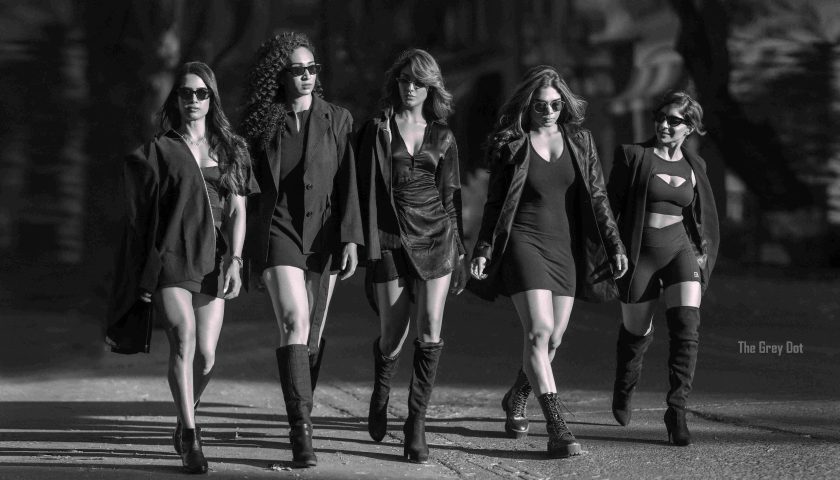Reflecting the growing importance of digital creation and the fashion metaverse, Hong Kong creative hub PMQ will on Thursday unveil the first designs to emerge from FabriX, a program aimed at strengthening the skills of the city’s rising talent.
They will be the centerpiece of an immersive physical installation at PMQ’s Hong Kong location from Thursday to September 11, and will be distributed online through its digital platforms and star social media partners.
At the onset of the COVID-19 pandemic, project director Shin Wong, a Taipei-born, New Zealand-raised curator who has directed the city’s deTour design festival since 2015, realized there was a lot of awareness , but a lack of knowledge about digital fashion in both Hong Kong and other Asian fashion hubs.
“[Designers] know about it, but they are still quite unsure of how to release it. And it was very difficult for them to find investment [to develop in this field],” she told WWD ahead of the exhibit featuring the first edition’s class of 12 designers.
Funded by Create Hong Kong, an agency dedicated to the development of the city’s creative agencies established by the government of the Hong Kong Special Administrative Region, FabriX’s main objective is to open up a new revenue stream for fashion businesses by supporting them from the Concept Stage using digital creation tools to list the resulting items on specialist markets such as The Dematerialized.
Although numerous digital fashion projects have been launched since the early days of the pandemic, “it was important not to jump on a bandwagon, [being] on time in giving experience [to the public] but also teaching designers how they can benefit from the whole process,” explained Declan Chan, a designer and creative consultant who serves as the project’s fashion curator.
So the program also aims to connect the dots for the general public, for whom digital clothing—let alone the metaverse—remains a nebulous concept.
Therefore the addition of explanatory sessions on the metaverse, the impact of digital fashion on the industry and how to respond to these new demands will be offered to students, designers as well as the general public between Friday and Sunday.
For the inaugural edition of FabriX, an open call resulted in 60 proposals, which were whittled down to 12 by the project’s selection panel of creative, fashion and retail professionals.
The winning proposals were those that displayed “a vision of how to translate their style into a digital environment — creating something more magical,” Wong said. “It was important to see that they could use [digital fashion] as an enhancement to their existing brand DNA,” rather than simply using the medium as a shortcut to add more styles to a lineup.
This year’s selection includes womenswear brands Cadylee, Celine Kwan and LoomLoop; menswear labels Demo, Harrison Wong, Kay Kwok, Shek Leung and Wilsonkaki; urban wear specialist Nilmance Studio; gender designer Christian Stone; YMDH influenced by street culture and accessories label Jüü Jüü.
Another requirement was that designers have an existing business, although an exception was made for the recent graduate Lee, whose daring real-life textile experiments and twisted silhouettes with a surrealist bent felt like they belonged in cyberspace, said Chan.
Determined to ensure a global footprint for the project, Wong and Chan selected a cadre of influencers and editors to bring these designs to life through social media, including London-based Susie Lau, Japanese journalist Yu Masui and Xiao Yang with based in Chengdu, chosen for their longstanding support for evolving design and futuristic trends in their personal style.
In the future, Shin envisions taking FabriX to other countries, naming Tokyo as a possible destination for a showcase. But beyond providing a buzzing showcase for existing designers, Shin would like the project to spark deeper conversations with schools, in Hong Kong and elsewhere in Asia, where she sees a real need to teach fashion’s digital tools. potential designers.
“Many young designers want to create digital items, but [the process] it’s quite expensive for them, especially when they’re not familiar with the tools,” Wong said. “Schools in Hong Kong are starting to teach them, but it’s still quite [rudimentary] and it will take several years before they get up to speed,” she continued, stating that talks were in progress to help accelerate the offering through FabriX.
Following the physical exhibition, this year’s 12 capsule collections will be released on digital fashion marketplace The Dematerialized on September 15, before rolling out to DressX and Asia-based NFT marketplace BlueArk in the coming weeks.




